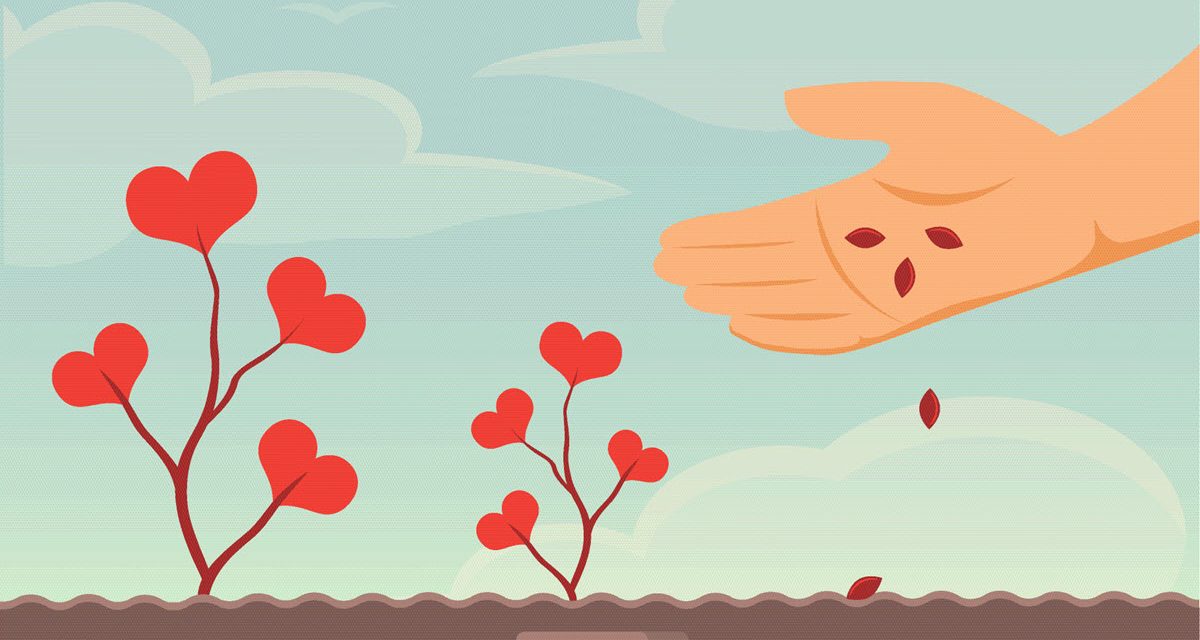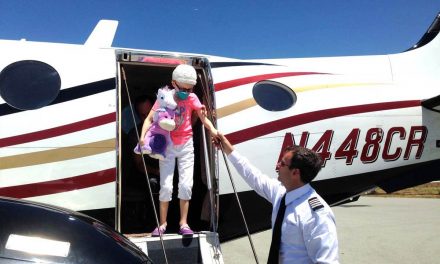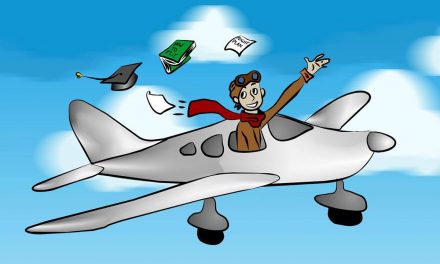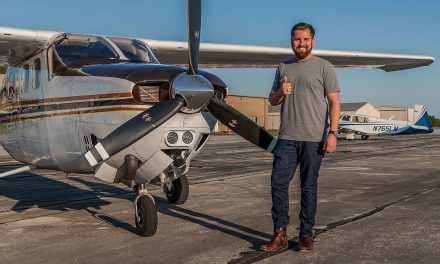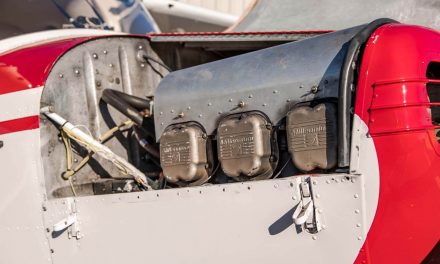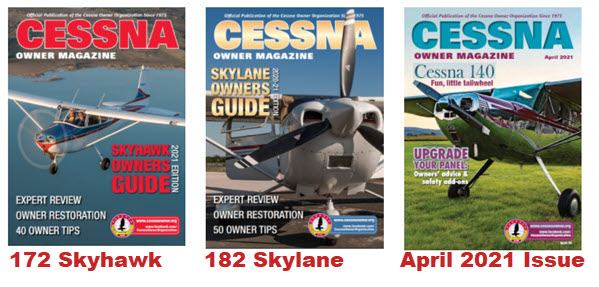Flying for Philanthropy
How to Use Your Airplane and Abilities to Help Others
By Floyd Allen
Taxiing down the runway and preparing to soar among the eagles is easily one of the more fulfilling experiences for any pilot. After all, flight has been one of mankind’s universal dreams since time began. However, there’s one experience that can make that flight even more rewarding—when you make that flight for the benefit of others.
“Though we may be blessed to have our own craft and benefit from those advantages whenever we want,” said Phil Sanders, owner of Triple S Repair in Kingman, Arizona, “we can’t lose sight of the fact that others out there, friends and family included, can benefit from those advantages as well.”
In Sanders’ case, many of these instances are most basic in nature. For example, on several occasions, Sanders has taken a bag of tools and flown to remote areas to help out with various household repairs. Those in need meet him at the airport and transport him to their home to deal with the “afflicted” appliance. In fact, one time the homeowner brought the appliance to him and he fixed it right there on the runway!
While not everyone has the ability to “heal” an ailing washer or dryer, an airplane (and the ability to fly it) can be used for a much greater cause, namely transporting people who are injured or ill to another town or specific facility where they can get proper medical treatment. “There are many occasions where I’ve flown someone from Kingman to Flagstaff, Phoenix, or Tucson to get the medical attention they need,” Sanders explained. “We (pilots) can do it so much quicker than driving. It not only saves a lot of time, but also alleviates a great deal of discomfort.” Whether flying blood to remote areas in your state or transporting patients from one community to another, such flights literally become “missions of mercy.”
As former Ranch Manager of the Boquillas Land and Cattle Company (aka “The Diamond A”), one of the largest cattle ranches in the west, Sanders has another unique opportunity to use his craft to benefit others. When key personnel join the ranch staff, he gives them a birds-eye view of the facility and points out vital information, such as the location of key waterholes, prime pasturing areas, and those areas most susceptible to flash flooding should cattle need to be moved during the rainy season.
“Perhaps the most unique ‘favor’ I ever did for anyone, was for a businessman friend of mine,” Sanders shared. “He called me early one afternoon and explained that he had a chance to close a major deal, but had to have a 3 million dollar check deposited in the bank in Kingman by two pm. There was no way he could drive up from Phoenix and make it on time, so he asked me if I could ‘taxi’ him and the check to the bank. Of course, I was more than happy to do so.”
Sanders also uses his plane for another unique and challenging philanthropic purpose—the scattering of cremated remains. “This may be challenging for many pilots around the country because there are no universal rules for doing it, so it’s really important that you do your due diligence and find out the rules and regs for your area,” he explained. “Some areas, like the Grand Canyon, have very specific directives and they must be followed very stringently, if for no other reason than to ensure that you are not violating airspace in anyway.” Before pursuing this endeavor, check with local authorities to ensure that you are, in fact, not in violation of any codes or laws.
Sanders said that while he has always tried to be sensitive to other people’s needs, next year he hopes to be even more proactive in using his plane to benefit others. “I hope to promote general aviation to help young people get actively involved with flying,” he said.
John Pichitino, owner of Pitch Perfect, a flight school in Nevada City, California, echoed that sentiment. “This is one of the major ways I use my airplane to help others and it’s literally working miracles in kids’ lives.” Pichitino avails himself to the Big Brothers program in his hometown. He currently has a 17-year-lold “little brother” he’s been partnered with for the last four years. “It’s truly unbelievable how my relationship with this young man has positively affected his self-esteem,” Pichitino explained. “I often take him and a couple friends with me on a flight and they’re so impressed when he flies (and lands) the plane himself. He even makes me hold my hands in the air so they can see that it’s really him flying the plane!”
Pichitino has an advantage in this realm as he is, of course, a certified instructor. However, he’s quick to point out that it is not necessarily the flight instruction that’s makes such an impact on his “little brother” and his friends. “What these kids need is for someone to care enough about them to take the time to talk to them, to take them out for lunch, and to show a little interest in them,” Pichitino explained, “I’ve opted to take the time to talk about aviation with them, trying to plant the General Aviation seeds in their minds and promote it to the upcoming generation.”
While you can find a young person on your own to mentor, Pichitino pointed out that an advantage to working under the auspices of the Big Brothers and Big Sisters programs is that they help bear the liability coverage should anything happen while you are flying with them. The ultimate goal, however, is that it benefits the young person now and, hopefully, keeps the “fire burning” for General Aviation in upcoming generations.
We’ve only scratched the surface as to how you can use your airplane and pilot skills to benefit others. As you enter 2014, consider how you can use your airplane, piloting skills, and time for the greater good. While you may not have ever considered yourself a philanthropist, know that today’s society needs as many altruistic-minded people as possible. After all, the ones we help today will be the ones who help others in the future. So, find someone to mentor; someone whose health you can facilitate; or someone whose dreams you can make come true. You may find that, in the long run, you will be more blessed than they are!
For more information about Big Brother or Big Sister programs in your area, visit www.bbbs.org.
About the Author
Floyd Allen is an educator and freelance writer in Phoenix, AZ, where he is a professor of history at American Indian College. In addition to writing magazine articles, Floyd is a professional blogger and novelist.

